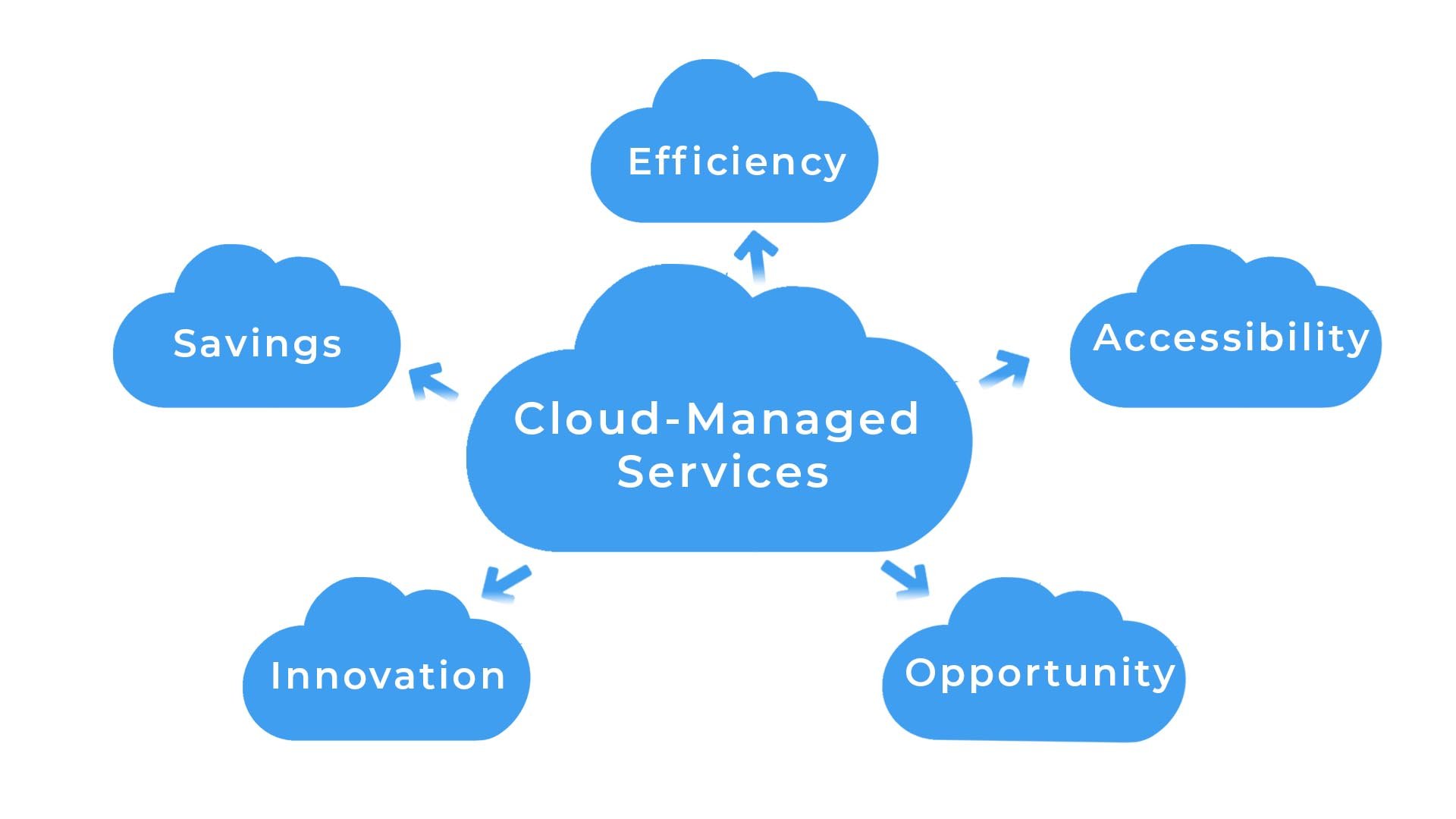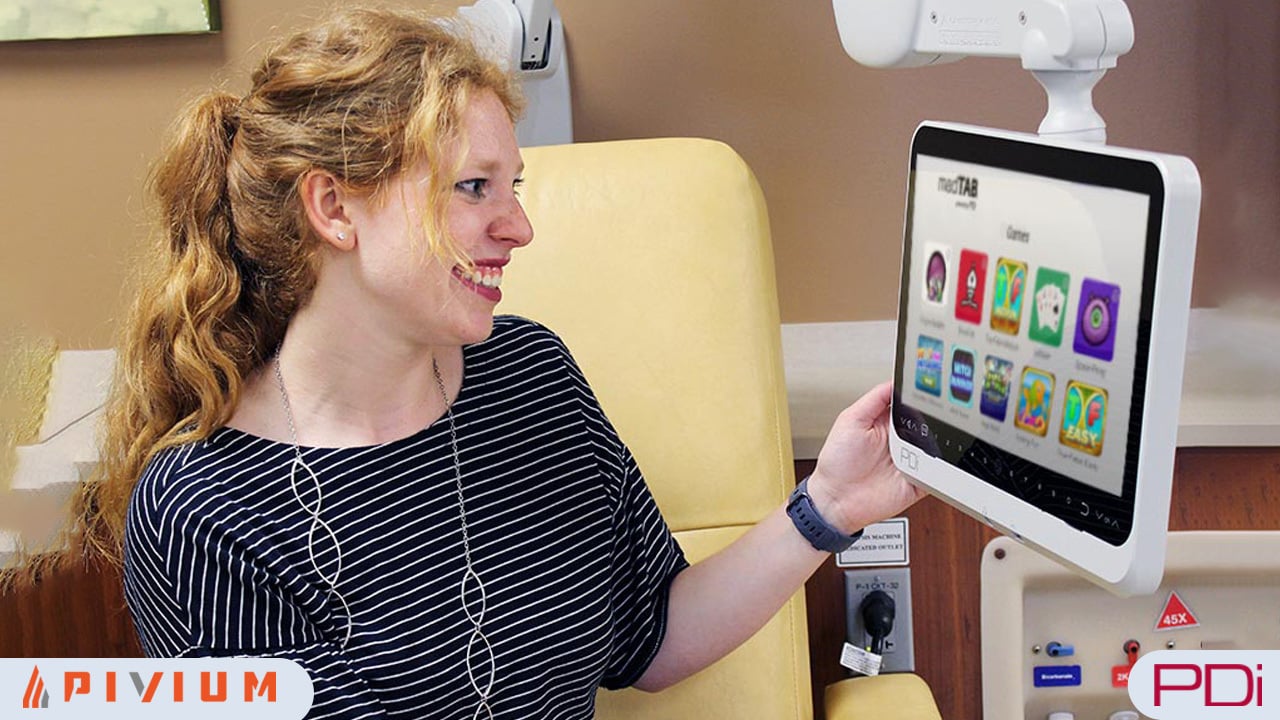Enhancing Care Delivery: The Trend of Virtual Nursing
The ongoing nursing shortage, intensified by the challenges brought on by the pandemic, has pushed healthcare facilities to explore innovative...
3 min read
Kayleigh DeLaet
:
February 23, 2023

As the digital world booms, cloud-managed services have emerged as a powerful tool to streamline operations. Touting benefits such as reduced costs, enhanced security, and data scalability, cloud technology is an attractive alternative to onsite solutions.
In the healthcare industry, more and more facilities are adopting cloud-managed services to increase productivity. By 2027, it’s estimated that global spending in healthcare cloud technology will reach $89 billion.
Read more to learn what cloud-managed services are, the different service model types, and the benefits of implementing cloud technology at your healthcare facility.
Cloud computing refers to the process of storing IT infrastructure offsite on remote servers, instead of on local servers. These remote servers are managed by a third-party vendor responsible for hosting, managing, and securing the data.
This technique allows staff to obtain information on-demand and eliminates the need to invest in on-site hardware and maintenance. As a bonus, employees have the flexibility to work remotely and IT teams can focus on more strategic tasks.
Powered by cloud computing, cloud-managed services deliver a wide range of functions to users, depending on the selected service model. These services can include anything from security and storage to programming tools and software applications. Cloud solutions are completely tailored to your facility’s preferences and needs.
.jpg?width=1920&height=1080&name=Cloud%20Services%20Rev%20(1).jpg)
There are three main categories of cloud service models, varying by degree of management. Each type satisfies a unique set of needs.
Infrastructure as a Service (IaaS)
Infrastructure as a Service offers users complete control and flexibility. Under this model, facilities outsource their infrastructure, including servers, networking, and storage; but manage their own operating system, applications, and data. However, users can still access their infrastructure through an assigned dashboard at any time.
IaaS is ideal for facilities looking to scale computing resources based on frequent changes in demand. Common providers of IaaS include Amazon Web Services, Microsoft Azure, and Google Compute Engine.
Platform as a Service (PaaS)
Platform as a Service is a happy medium between cloud service models. PaaS provides software developers with a framework to create cloud applications, complete with a database and operating system. Under this model, users can promptly respond to patient feedback and accelerate software development.
PaaS is fit for facilities that want access to a wide range of programming tools, without the headache of complicated backend processes. Some well-known PaaS providers include AWS Elastic Beanstalk, Microsoft Azure App Services, and IBM Cloud.
Software as a Service (SaaS)
Software as a Service is the most commonly used service model because of its simple, hands-off approach. With this model, a third-party provider manages all technical components, from integration to security, in addition to creating and hosting software. The software is delivered via a web browser, so there is no need for IT to install or update applications. SaaS enables facilities to boost productivity by offering complete automation.
There are several SaaS providers, but we’re big fans of GENiO by PDi – a device management software designed for healthcare. Featuring personalized applications, remote troubleshooting, and direct messaging, GENiO makes IT less labor-intensive.

Reduced Costs
One of the biggest benefits cloud technology offers is substantial cost savings. Rather than dishing out money on expensive hardware, facilities can “rent” the equipment from a cloud provider instead, and only pay for what they need.
This way, infrastructure costs are incurred by the vendor, while users are billed a nominal subscription fee. This method significantly reduces the cost of ownership and maximizes storage space.
Enhanced Security
Another key advantage of cloud-managed services is enhanced security. According to the Corporate Finance Institute, cloud providers are required to use the latest and most efficient security measures. This means that cloud technology is adept at filtering and preventing security threats, which is essential for protecting sensitive medical data.
Additionally, data stored in the cloud is saved on servers spanning various locations. So, if one data center suffers damages, providers can easily restore the data using a backup copy.
Data Scalability
A final benefit of cloud solutions is the ability to scale resources in real time based on demand. Whereas the capabilities of onsite infrastructure are limited, cloud services are extremely adaptable. For instance, if a facility wants more memory, a provider can simply switch to a server with higher RAM.
Because cloud providers have extensive infrastructure, they can scale in a much more timely and efficient manner than a hospital could on its own.
In an ever-changing healthcare environment, it’s easy to see how cloud computing is overcoming challenges and transforming the industry. Combining modern solutions with a cost-effective approach, cloud-managed services are mutually beneficial to both patients and providers.

The ongoing nursing shortage, intensified by the challenges brought on by the pandemic, has pushed healthcare facilities to explore innovative...

In a digitized world, cyberattacks against healthcare organizations are becoming more and more widespread. As hackers become skilled at infiltrating...

In the world of healthcare, the most effective solutions often emerge from collaborative efforts. Pivium and PDi are prime examples of this, with a...